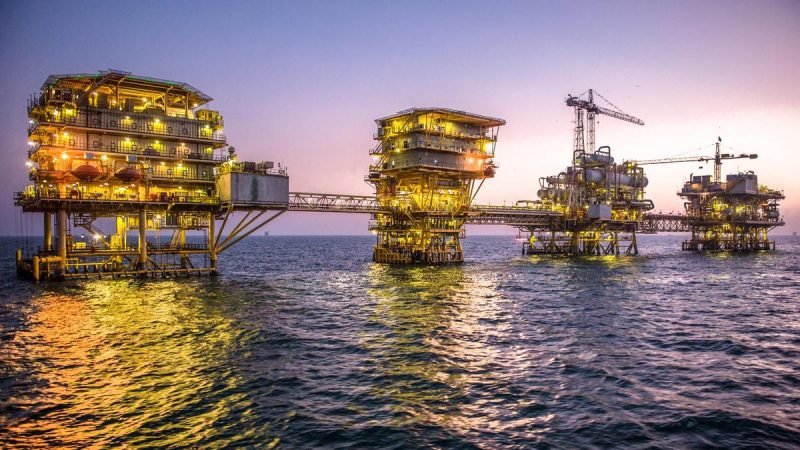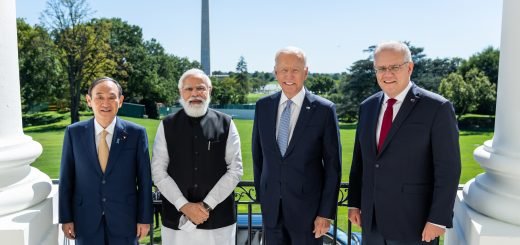GCC Economies in the Post COVID world

The six economies of the Gulf Cooperation Council are marked by an inordinate dependence on oil revenues with the boom and bust cycles of oil matching their vicissitudes. Often they are described as “rentier states” earning most part of their income from the sale of commodities to foreign countries and not accountable to the citizens since they do not levy taxes. The cradle to grave welfare system implemented by these governments and the high salaries paid to government officials seem to serve as a compensation for the lack of transparency and a way to buy the citizens’ allegiance, confirming this perception.
It was the spike in oil prices during the 1970s due to tumultuous events like the embargo undertaken by the OPEC against states that supported Israel in Yom Kippur War and the Iranian Revolution of 1979 that propelled the Gulf countries into economic prosperity and political clout in the international arena. The prices declined by the 1980s and 90s but rose again in the period between 2002 and 2008, forming 86% of the government revenues in 2006, up from 77.4% in 2002. It was the oil revenues that enabled the Gulf states to strengthen welfare schemes in the face of the Arab Spring wave of pro-democracy protests in 2010.

The future of the oil industry had not seemed rosy since the global economic recession of 2008, with prices plummeting in 2014, threats posed by the shale gas extraction in the US and countries increasingly making commitments towards a fossil fuel-free future. In 2014, the choice was between producing at low prices and ceding market share to countries like the US and Canada by increasing prices. The Saudi-led Gulf states opted for the former in the hope that the US would not be able to sustain the comparatively expensive shale gas fracking while oil was being offered at a cheaper price. The rich Saudi had enough resources and reserves to fall back upon then.
The crisis that faces the GCC economies now seems to be an unprecedented one in being a humanitarian one in addition to affecting all sectors of the economy. The Gulf nations have relied on the cheap supply of foreign labour through a “sponsor” system whereby each unskilled immigrant labourer has to shell out more than the expected yearly salary and entrust their sponsor with passports and visas. This exploitative system had invited criticism from human rights organisations and is being exposed even more clearly in the present crisis, with outbreaks happening in overcrowded accommodations and labourers being denied treatment in hospitals. In spite of the scary situation, the workers are unable to return to their countries for fear of losing jobs and forced to put lives at stake every day while going out to work. However, the current crisis is also going to result in loss of jobs in private sectors like construction, hospitality and travel and result in repatriation of a huge number. The governments can be expected to pursue policies of nationalization in jobs, similar to “Nitaqat” that was implemented by Riyadh and had resulted in the loss of employment for a large number of South Asians.
The steep fall in demand due to the standstill brought about by the pandemic as well as the fall of prices due to the price war between Saudi Arabia and Russia has driven the crude oil prices to below zero, meaning the suppliers would have to pay consumers as storage proved to be way more expensive than the commodity per se. The worldwide economic paralysis that seems slated to go on for a long period leaves little room for short term fixes and raises uncertainty over the continuance of welfare benefits that citizens have got used to. Since it was the same system that helped GCC states weather the storm of Arab Spring, the rolling back of welfare can have political in addition to economic consequences. The loss of financial heft might also curtail the geopolitical ambitions of regional hegemons like Saudi Arabia. The GCC intervention in Yemen has strained Riyadh’s finances already and it needs the oil price to increase by two times in order to balance the budget. The ambitious 2019 budget and the initiative called Vision 2030 outlining reforms that had been planned expecting the oil revenues would have to be stalled with the government beginning to implement austerity measures including a steep hike in value-added tax. The Hajj pilgrimage that is the top non-oil contributor to the state coffers has also been interrupted in light of the COVID situation.
The hit taken by airline and hospitality sectors due to social distancing necessitated by the pandemic has deeply impacted the UAE which is the most diversified economy of the region with 71% of the GDP accruing from non-oil sectors. Qatar has not yet dismissed the possibility of conducting 2022 Football World Cup and is the only GCC state expected to report a budget deficit of below 10% but has delayed the award of contracts amounting to 8 billion dollars and its airline Qatar Airways has implemented a massive employee layoff. Kuwait has been running on budget deficits for several years and the fiscal health will be certainly worsened with the current limbo. Bahrain and Oman would not probably be able to move ahead without aid from the fellow GCC states.
The COVID crisis underlines the need to adopt a more sustainable and diverse economic model. Though the kingdoms have attempted to diversify their economies in recent years, a structural change in the economy that aimed at holistic development was not brought about. And even though the non-oil sectors grew at a faster rate than the oil sector, the latter’s relative importance was not altered. Public investments are usually thought of as improving the long term development prospects of a country by making available excellent infrastructure, providing better education and health facilities to the workforce and leading to a shift from low productivity to high productivity sectors. In contrast to this, the public investment in GCC countries aimed at developing non-oil sectors merely through the accumulation of capital and unskilled labour with the public expenditure of the revenues gained from the sale of oil continuing to be a strong catalyst for growth in the absence of a robust private sector. In other words, even the government initiatives like the building of cities and expansion of partly or fully state-owned companies to promote non-oil sectors were funded by oil revenues. Whatever growth was achieved in the non-oil sectors was not a result of the improvement of labour productivity either but the mere accumulation of cheap labour from other parts of the world. In short, non-oil sectors failed to grow into self-sustaining industries and relied to a great extent on factor inputs provided or subsidized by the government and formed a compliment and not a substitute to oil and gas industries.

It does not help that the natives are not attracted to employment in the private sector since the public sector offers ample opportunities for employment with high salaries. Perhaps this is the government’s way of distributing the oil revenues among the local population but it also impedes the employment of natives in skilled labour and thereby the expansion and growth of high productivity sectors, as the foreign workforce is rather dispensable in the eyes of the government. The large supply of cheap foreign labour continued to be attractive with the draconian sponsorship system that enabled employers to exercise control over the employees by withholding personal documents and failure to ensure equal wages for foreigners. It was capital intensive manufacturing industries and unskilled labour-intensive sectors like construction and wholesale trade that received a fillip through the state’s formation of joint ventures with private players and subsidizing of production inputs like gas, electricity and oil as the investors had little incentive to invest in skilled labour when cheap unskilled labour was easily available.
The demand for oil might not pick up soon as fast-growing economies like China and India would need time to recover from the economic crisis brought about, by COVID-19 that might go on well into 2021. The supply might also be hit with labourers not able to show up for work. Prevention of outbreaks and availability of treatment for the affected must be the first priority of the Gulf states like that of any government but it is also important to not lose sight of the opportunity to translate into reality a long-sighted economic vision that results in wholesome development and is inclusive of migrant labourers. And government support for the private sector must go beyond facilitating the supply of cheap labour or providing subsidies to capital intensive industries. A deeper overhaul of the system leading to the encouragement of high productivity sectors that demand skilled labour is required. The segmentation of the labour market on the basis of nationalities causing differentiation in wages and inhumane living conditions for foreign labourers has to be eventually scrapped.



















